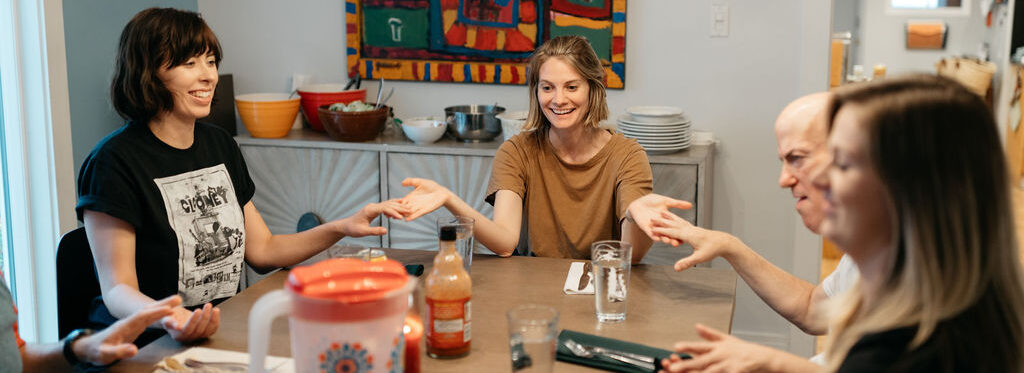L’Arche Chicago provides quality care in comfortable homes for adults with intellectual disabilities (core members), as well as meaningful opportunities for personal and professional growth for assistants who come to share life with them. We live this mission in daily life together: afternoon walks to the park, doctor’s appointments, and gathering for dinner and prayer at the end of the day. In L’Arche we believe these ordinary shared experiences have deep significance. Not only is it our mission to provide and advocate for the highest quality of life for our friends with intellectual disabilities, but just as importantly, we are committed to live together in a way that welcomes difference. As our society seems increasingly sectarian and fearful of difference, L’Arche offers a counter story: that the differences that so often keep people apart can become the substance of joyful and transformative relationships.
Our posture of welcome is intentional, and it is rooted in honoring and responding to the stories of core members. As core members gift us with their tender memories of exclusion, of being made to feel abnormal or insignificant because of how they look, move, or sound, we grieve with them. We reflect together on how such a quick judgment of someone misses so much about their full and distinct humanity! As a community, these stories are sacred. They lead us inward, as we reflect on times we have been judged or have judged others, and outward, as we renew our commitment to inclusion.
The Founder of L’Arche, speaks of the deep spiritual significance of welcoming difference. “It is not surprising that Jesus comes under the guise of a stranger,” he writes. “I was a stranger and you welcomed me.’ The stranger is a person who is different… To welcome is to make the stranger feel at home, at ease, and that means not exercising judgement or any preconceived ideas, but rather giving space to be. Once we have made the effort of welcoming and accepting [the stranger], we discover a friend; we live a moment of communion, a new peace; a presence of God is given.”
The great experiment of L’Arche is trying, with humility and consistency, to view difference as an invitation. Together we wonder: what would happen if instead of responding to difference with avoidance, we engage? Instead of mocking or teasing what is unknown, we ask thoughtful questions? Instead of taking a small part of someone’s life and making it the totality of who they are, we develop a relationship and let the full person unfold?
In L’Arche Chicago we believe seven different people sitting at the dinner table, spanning decades in age, differently-abled, of different ethnicities and religious backgrounds, is a simple yet profound moment of inclusion. We hope to be a symbol of hospitality in a divisive society, reminding our friends and neighbors that welcome of difference need not be elaborate or even loud, only genuine.

